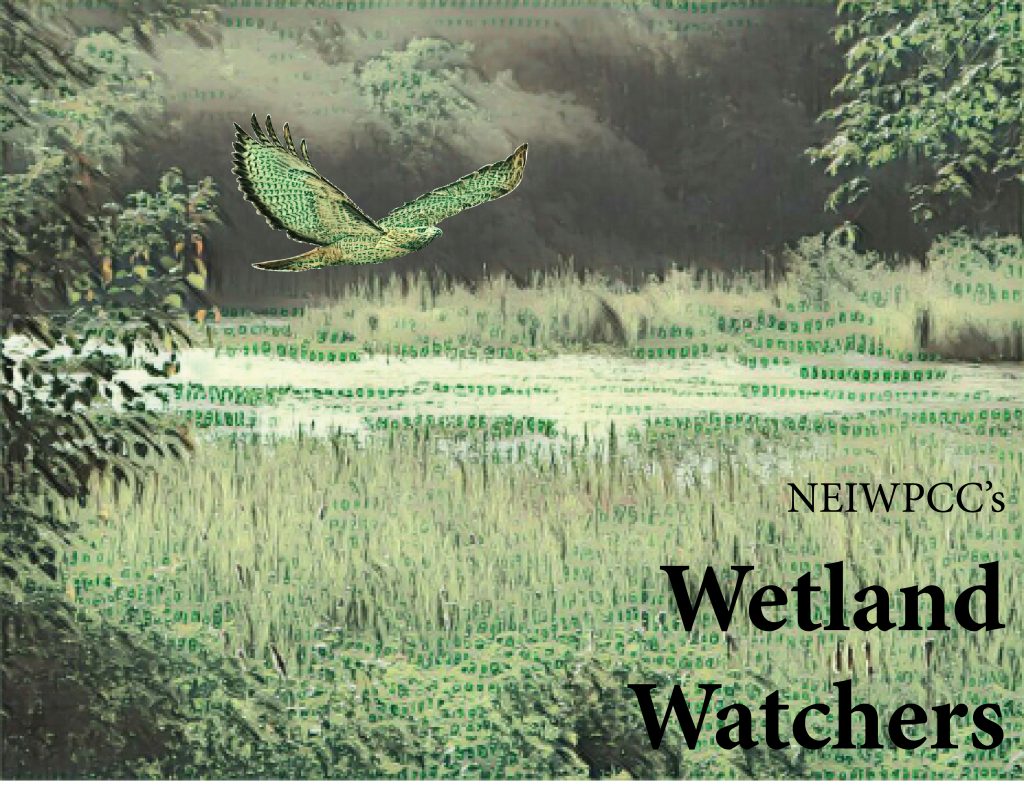NEIWPCC created this podcast with National Wetland Condition Assessment program managers at the U.S. Environmental Protection Agency and with the New Hampshire Department of Environmental Services field crew team.

Wetland Watchers Podcast Episodes
Episode 1: Why are wetlands valuable?
Dive into a crash course on wetlands – what they are and why they are an important ecosystem – with the EPA and New Hampshire Department of Environmental Services (NHDES).
Listen to Episode 1. (7 minutes)
Episode 2: Wetlands Conditions Assessment
Explore a New Hampshire salt marsh and the role of the National Aquatic Resource Surveys (NARS). Plants, soil and water samples were collected as part of the assessment.
Listen to Episode 2. (11 minutes)
Episode 3: Wetlands outlook
In this episode we discuss how the assessment data is used to evaluate the health of wetlands, providing insights on changes in conditions and trends of national wetland resources.
Listen to Episode 3. (7 minutes)
National Wetland Condition Assessment
The National Wetland Condition Assessment (NWCA) is a collaborative survey of our Nation’s wetlands. The NWCA examines the chemical, physical and biological integrity of wetlands through a set of commonly used and widely accepted indicators.
Though we are aware of the important benefits wetlands provide, we know very little about their actual ecological health. The NWCA is a statistical survey that begins to address some of the gaps in our understanding of wetland health by providing information on the ecological condition of the nation’s wetlands and stressors most commonly associated with poor condition.
The NWCA is designed to answer basic questions about the extent to which our nation’s wetlands support healthy ecological conditions and the prevalence of key stressors at the national and regional scale.
National Aquatic Resource Surveys
The National Aquatic Resource Surveys (NARS) are a collaboration between EPA, states and tribes to assess the quality of the nation’s coastal waters, lakes, rivers, streams and wetlands. The NARS provide critical, nationally-consistent data on the nation’s waters.
